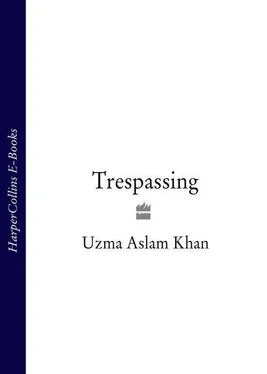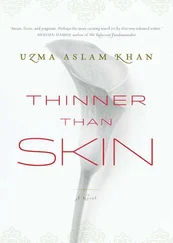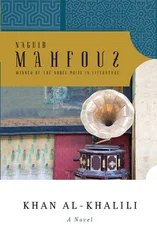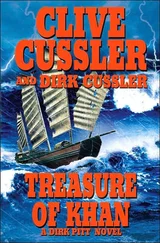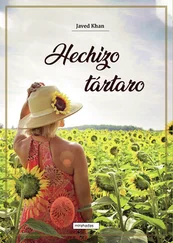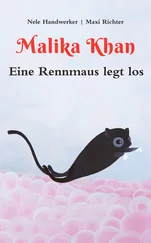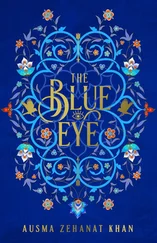There’d been no rain since the downpour last month. The sultry, torpid air was a thick compress holding the torrent back. Perspiration dotted the thin fuzz of her upper lip and the hair around her temples crimped like her mother’s.
A few days ago, she’d begun writing her own account of the Empress Hsi-Ling-Shih, the founder of sericulture. At one time the cloth was as valuable as oil and men went to equally grotesque lengths to acquire it.
But now Dia decided to scratch the sentence out. She wasn’t meant to stop the clock at the tortured Greek, Bengali or Benarsi weavers, nor pause over the Caspian Sea two thousand years ago, to watch Roman soldiers fleeing the Parthians. The Parthians waved banners of silk, and the Romans ran because something so fine could only be the work of sorcery. She might reconstruct that some other time.
Now she went forward, clenching the hour hand before it could race to the present. It was a blustery day in spring and the clock struck 4.00 p.m. She wrote:
The Empress stepped out of a bus with a portfolio tucked under her arm and went to meet the Emperor outside a brick café. She put a maroon silk scarf around his neck. She’d designed it, choosing the color because it matched his eyes. He said the pale red selvage of embroidery was a bit effeminate.
‘Are you rejecting my gift? After all the ones you’ve sent me on wild-goose chases for?’
‘But you enjoyed each chase, didn’t you?’ He kissed her, swiftly adding that he loved the scarf and would wear it even in Karachi in mid-summer.
They sat in a corner of the café. Under the table, she slipped her feet out of her sandals and over his boots. He told her she’d always be his. That was the only thing that wouldn’t change. Otherwise, he could taste a difference in the air. Around the globe, people were taking risks to speak their minds, and they spoke with such conviction, such humanity. His father was part of that, wasn’t he?
She nodded. The blood rushed to her cheeks as he traced her bones. They talked until twilight of her farm-to-be, the children they’d have, the home they’d build.
And then they did a little dance, wriggling right there on the floor of the coffee shop. There was a rip, a tearing of hide, a circuit of the earth, and Riffat became Dia loving Daanish in the cove.
‘The next time I’m here,’ he clasped her in his arms, ‘I’ll teach you to swim.’ While he described the magnificent creatures of the sea, the wind tossed his fresh scent with the fecund fragrance of her groin. ‘Like mushrooms simmering in the salt air,’ he said.
The sand was a pumice stone. It chafed her back and rent a chasm down her spine. Another creature wormed its way out, and when it was free, Nini stood before them.
‘I want a change,’ she said, carrying a tea tray. The Emperor’s son took his cup and ate a chicken patty. The halwa she’d made herself. Because it was just right, he slid a ring around her finger.
‘She comes from good blood,’ his mother said.
‘Have another cup of tea,’ she said.
‘Lucky Nini,’ the sisters giggled, dreaming of their turn.
Dia stopped.
She tore the page out and breathed heavily. This wasn’t working.
She hadn’t eaten in days. Severely dehydrated, she felt woozy and her head ached. Her clothes were drenched in sweat. They were the same she’d worn for days, as she sat here each morning, trying to synthesize what she felt. Inam Gul kept calling but she ignored him. Her mother also called but she wanted no more of her. At least not yet. She looked up. Daanish’s flight had left that morning. Perhaps at this very moment, he was crossing the Atlantic. That’s where she was, and she had to find her way back. No more detours.
She remembered their last meeting.
They’d sat in the unfinished house, in the section he called the guestroom, when the shadow appeared again.
‘This time you go see who it is,’ she whispered. ‘I’m staying here.’ Daanish stood up, and then they saw two shapes approach, one distinctly larger than the other. He took a few brave strides, leaving Dia concealed behind a wall. She peered out and gasped: it was Anu. Behind her, Salaamat.
‘What are you doing here?’ Daanish’s voice was surprisingly meek.
‘I should ask you the same,’ she replied. ‘But I know the answer. Where is she?’
Dia stepped out, scowling at Salaamat. He’d told. She forced herself to look at Anu, who was scrutinizing her.
‘The gift,’ Anu muttered. ‘Could it be? But the nose is not his. Nor the mouth. You are short, he wasn’t.’
‘Anu,’ Daanish interrupted. ‘This is Dia. Dia, my mom.’
Dia turned to him, exasperated. ‘We’ve already met. Remember?’ To Anu she uttered a futile greeting.
Anu did not return it. She was saying, ‘Hair too straight, but complexion nearly his.’
Daanish looked helplessly over his shoulder at Dia. ‘This is way harder on her than it ought to be.’
Why don’t you tell her that, Dia thought. And while you’re at it, ask her what she’s talking about. She rubbed her forehead uneasily as Anu’s ghastly inspection continued.
At last her gaze drifted up. Gouging Dia’s eyes, she nodded, ‘His.’
‘I’ll call you later,’ Daanish hurriedly declared. ‘Let’s go,’ he pulled Anu away.
Dia was left alone with Salaamat. ‘What are you waiting for?’ she wheezed. ‘You’ve spoiled it all. You have none of your father’s goodness!’
Storming by him, she wished she had it in her to kick his shin, or strike his cheek. Anything to make him repent, to shatter that stony composure. But she didn’t.
It was in the days when Dia waited for Daanish to call that Riffat told her about Shafqat. Dia would not speak except to tell Riffat she’d only ever have the one father she’d known. It was her mother there were two of.
She retreated then, just like her father had done.
Riffat followed, pleading, ‘Anything you want, Dia. Please say it. Anything.’
Anything?
And then Daanish called.
They said nothing for a while, each listening to the soft breath of the other through the receiver. She wondered if, like her, he was recalling her every feature, puzzling over which they shared, and which they didn’t. Anu had stopped at the eyes. But Dia’s were a different shape from Daanish’s — hers were rounder, his longer. Or was she already rewriting him?
At last she whispered, ‘Now I know why I’ve collected stories of origins all my life. I’ll never know my own.’ She fell silent. Her own voice was alien to her. Then, ‘What can we do?’
She thought she heard a gulp. After several more seconds, she asked, ‘Are you there?’
He sighed. ‘I don’t know what to do. Maybe Khurram’s right. I should do what everyone wants. Marrying Nissrine would make so many people happy.’
Dia was in the dining room, the same place she’d stood when discussing Daanish with Nini. Was that just a few months ago? She’d felt revolted then; only now did she realize what revulsion was: a pressure in the pit of her stomach, rising in a scream like a tea-kettle’s: ‘What the hell are you talking about?’
Daanish’s answer was terse, his voice hard. Good — she should not be the only one enraged. He said, ‘Listen before you judge.’
‘Talk then,’ she spat.
‘This has been hard for Anu. Try to understand that you’re not the only one affected. If I can make up for all Anu’s suffered, why shouldn’t I?’ His voice trailed. ‘Maybe just a simple engagement now. I don’t know. I haven’t decided. The wedding could come much later, if I’m still inclined.’
Читать дальше
Конец ознакомительного отрывка
Купить книгу
